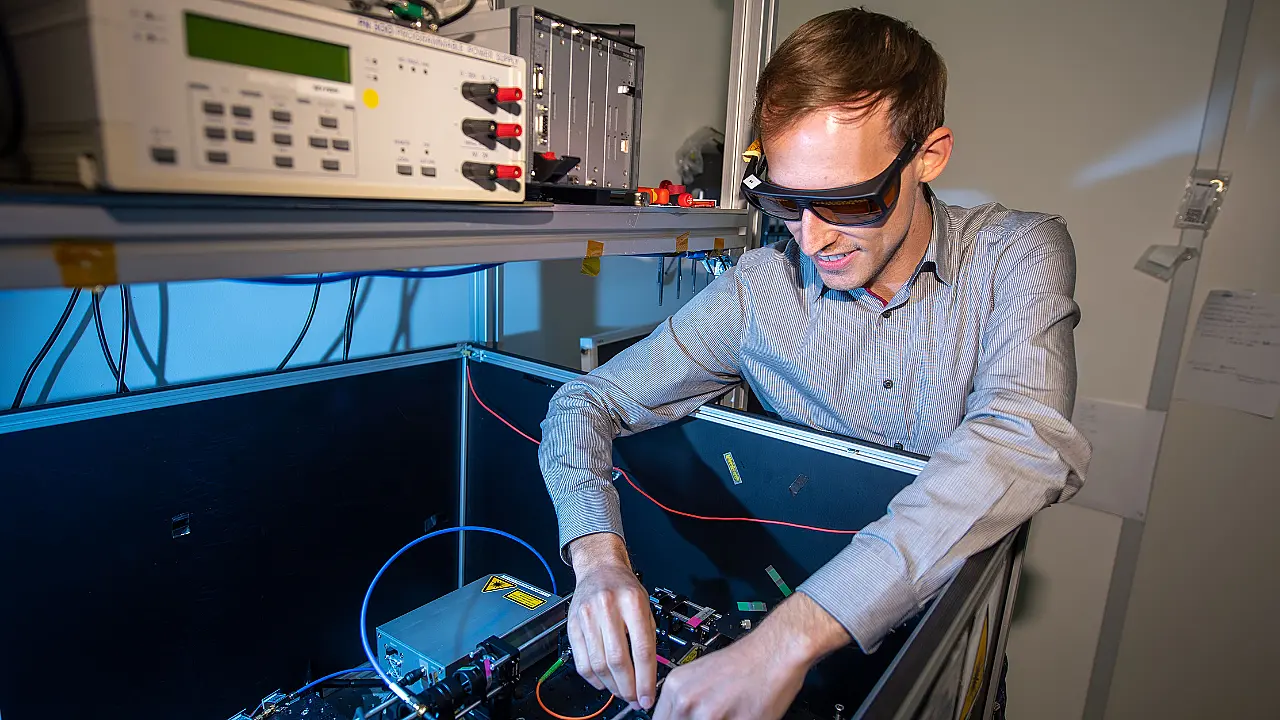
The smallest building blocks of matter and even smaller than atoms but have the most significant potential to newer technologies on many counts; this is how Quanta can be described, as they follow special laws of physics and exhibit complex interactions.
The technological potential has just begun to be explored over the past few decades. In the process, the elementary particles assume states that are sometimes difficult to imagine, for example, superpositioning or entanglement.
The first generation of quantum technology is already starting to see use in our daily lives, perhaps in semiconductors, lasers, fibre-optic networks, or even in magnetic resonance imaging (MRT). And systems such as the global GPS satellite navigation network would be unthinkable without quantum physics. Market experts also predict strong growth in quantum sensing applications in the years ahead.
To travel in this journey further by sharing strong growth expected for quantum sensors and commercialising it, Robert Bosch GmbH has recently set up a new business unit. Accordingly, an in-house start-up will pool the research results and translate them into products.
The global company has been actively involved in eight publicly funded quantum sensing projects, some of them international, since 2018. With this new business unit, it wants to open up this field for its own strategic purposes.
In 2021, $22 billion was invested worldwide in quantum technology. According to McKinsey, the market for quantum sensors is expected to grow to as much as $7 billion.
Conquer The Hidden Quantum World
This is perhaps the impetus for the global technology company Bosch to set up a start-up for quantum sensing, as it has begun working on second-generation quantum technologies, including quantum sensors. Here, quantum effects are not only applied; they are also deliberately manipulated. This paves the way for groundbreaking innovations in such fields as autonomous vehicles or medicine.
In the words of Volkmar Denner, former CEO and now the scientific advisor to Bosch in the field of quantum technology, “A century has passed since Einstein’s era, and yet we’re still blown away by the effects of quantum physics — and the practical applications of quantum technology are bound to be even more astonishing.”

Jens Fabrowsky, Executive Vice President, Bosch Automotive Electronics, responsible for the semiconductor business, sees Quantum technology pushing the boundaries of what is possible – in data processing and sensors. Moreover, the aim is to increase the overall practical benefit of quantum effects – for everything from the development of carbon-neutral powertrains to neurological diagnosis.
“Bosch has been doing extensive research in quantum sensing for many years now, and we see ourselves as global leaders in this area. Now we also want to use this as a basis for future business models,” Fabrowsky added.
Bosch’s new business unit will be located on the premises of its grow platform GmbH subsidiary in Ludwigsburg. In terms of organisation, the start-up will be assigned to the Bosch Automotive Electronics division, based in Reutlingen.
Dr Katrin Kobe In The Driver’s Seat
Bosch has announced that the CEO of the newly established start-up is Dr Katrin Kobe. A physics PhD, she brings over 25 years of management experience with various technology companies. During that time, she developed several new business areas.
“As a global company with alliances and expertise in quantum technology, Bosch is seizing the opportunity to make headway with this promising new field in an agile start-up environment,” Dr Kobe says.
There are already 15 associates working at the new start-up. The team, which is set to grow to more than 20 in the coming months, is looking to attract engineers and business developers in particular.
Quantum sensors use atomic measuring instruments to measure the individual atoms of a gas or defects in solids. Thanks to quantum technology, this will soon allow measurements to be carried out that are nearly 1,000 times more precise than those done by today’s MEMS ( micro-electro-mechanical system) sensors.
For instance, MEMS sensors are manufactured by Bosch in Reutlingen, Germany. Every day the company produces over four million MEMS sensors for mobility solutions and the consumer electronics industry.
Quantum sensors will, for example, help diagnose neurological conditions such as Alzheimer’s and Parkinson’s more accurately and efficiently. In addition, they can use to record nerve impulses and thus to control artificial limbs one day. These sensors can also detect the tiniest changes in an object’s position.
Quantum is one way to really secure the Internet and the communication in the Internet of Things”, says Dr Shohini Ghose, Professor of quantum physics, who works with her team on encryption protocols of this nature.
Bosch has been researching quantum sensing for seven years and has built fully functional and robust demonstrators of a quantum magnetometer and a quantum gyrometer. Quantum magnetometers can, for example, be used to detect the tiny magnetic fields generated by physiological processes, while quantum gyrometers permit the high-precision detection of rotations for the navigation of autonomous systems.
The long-term goal for the technology company is to achieve further miniaturisation and integrate the technology on a chip.